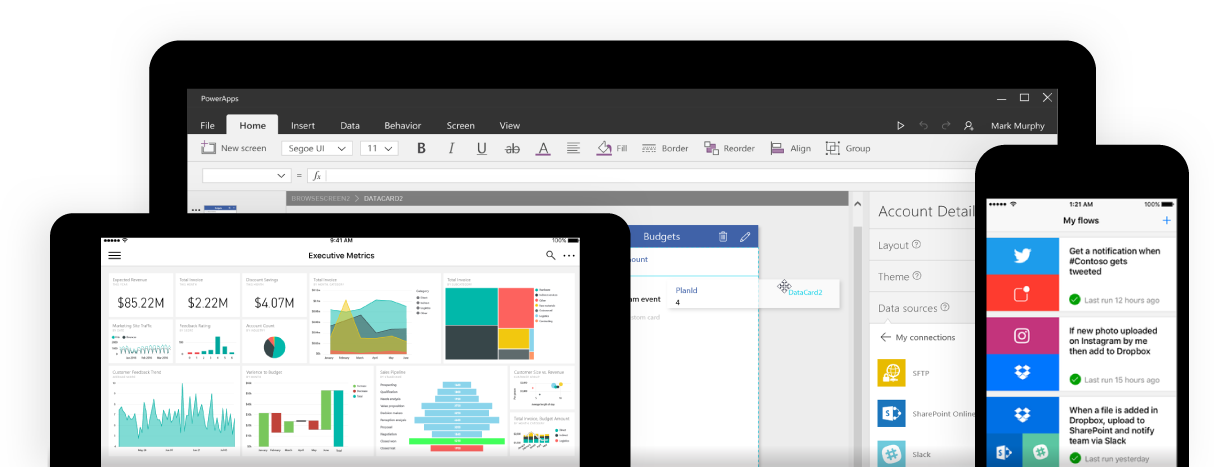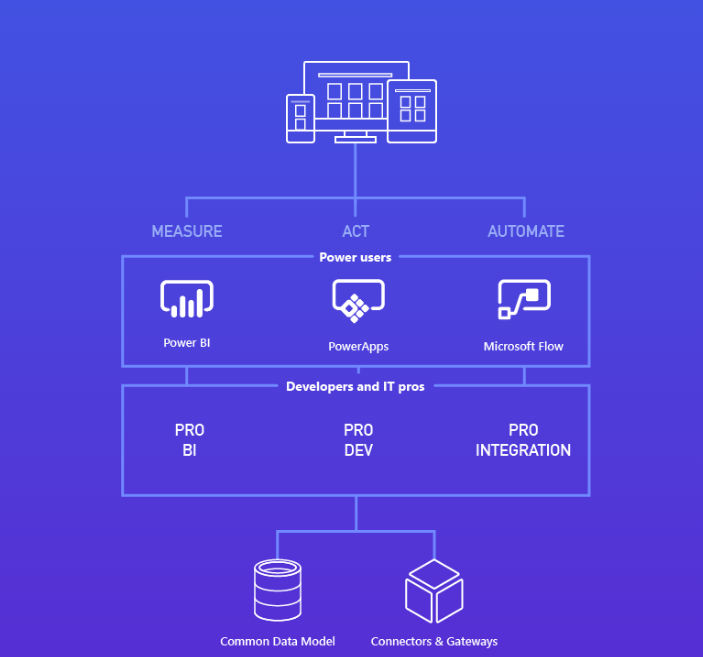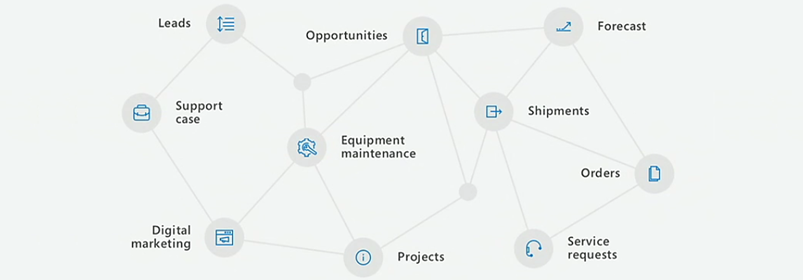Microsoft Dynamics 365 Pricing and Implementation Costs
Speculation from the Dynamics community of customers and resellers has formed over the release of pricing for Microsoft Dynamics 365.
Table of Content
There has been a much speculation from the Dynamics community of customers and resellers as to the ultimate release of pricing for Microsoft Dynamics 365. Hi-tech media outlets, industry analysts, and bloggers are having a field day. Even competitors have gotten into the game. Speculation turned into “scooping” when a Microsoft reseller allegedly let the virtual cat out of the bag after an internal meeting between Microsoft and their channel partners.
I’m assuming that whatever they posted is either wrong or covered under NDA (non-disclosure agreement) because most of those posts have since disappeared. A few remain, like these posts from ZDNet, OnMSFT.com and this from mspoweruser.com.
I certainly understand why everyone is interested in writing about pricing for Dynamics 365, but the fact is that pricing has not been formally announced and isn’t even the most exciting thing about this launch. It’s just the most exciting thing to write about because it is still a big secret. Microsoft will determine the most competitive subscription cost for Dynamics 365 and will surely reward customers that invest more heavily in the Microsoft platform by giving the best pricing. That’s the way it works, right?
Either way, we’ll all know in a few weeks when official announcements are made. Between now and then, it is our job to figure out what the true business value of this announcement is. Resellers need to evaluate the impact to their clients and prospects. Customers need to determine the impact for their company. And industry pundits need to continue speculating non-stop until the next headline trumps it. In the meantime, it’s back to sorting out how Dynamics 365 will (or will not) improve on their current offerings.
If you already own a Microsoft Dynamics solution, you’re probably wondering how this will affect your particular deployment. Below are a few of the questions we’re receiving from our customer base:
Will we get more features with Dynamics 365?
That’s a loaded question. Dynamics 365 is a roll-up of multiple products, including their flagship ERP, CRM and Office suites, so the answer is likely “yes” for most Dynamics customers. Those using only Dynamics AX or Dynamics NAV may choose to implement new products, like sales and customer service (originally part of Dynamics CRM). There are other products and features being offered as well. Learn about other components in my earlier post titled “Dynamics 365 will do for ERP and CRM what Microsoft Office did for Word, Excel and Project?”.

In addition to new products, there is the “common data model” (referred to as CDM) that will deliver a vast array of features and capabilities across all components in Dynamics 365. The Microsoft Common Data Model comes with hundreds of entities established over years of working with enterprise customers. Use the same data with any of the platform tools, add custom entities, and rest easy with built-in scalability and analytics. The potential for integrating across solutions not only increases considerably but the technical requirements to do so decrease dramatically. Microsoft’s PowerApps and Flow solutions (also included) open up a wide range of possibilities. Read here to learn more.
Will we need to re-implement? Re-train?
The right question is “should we re-implement?”. If you were previously using Dynamics AX, CRM or Office 365 then there will be no required re-implementation as the products are largely the same as before. Even third-party add-in solutions should continue to work without further investment.
However, companies that decide to implement additional components of the solution and take advantage of the slew of included cloud-driven capabilities, may decide to rethink their current implementation.
Microsoft Dynamics customers will be able to bring data they already rely on together without migrating a thing. They will be able to utilize PowerApps to build mobile apps using a rich set of connectors to enterprise data, including on-premises sources and their own APIs.
In a company blog post announcing Microsoft Dynamics 365, Takeshi Numoto, Microsoft’s corporate VP for cloud and enterprise, described Dynamics 365 and a suite of tools called AppSource as a move toward offering more modern and intelligent business apps.
“Dynamics 365 will morph Microsoft’s existing disparate Dynamics CRM and ERP cloud solutions into a single cloud service with specific apps such as Financials, Field Service, Sales, Operations, Marketing, Project Service Automation and Customer Service. While each are part of a common service that can be deployed independently, allowing customers to pay just for apps they require, they work together as customers add on capabilities”, Numoto said.
Microsoft is also natively embedding its Power BI dashboard tool and Cortana Intelligence, which he said will “help customers achieve their business goals with predictive insights, prescriptive advice and actionable next steps.”
Imagine how you might have implemented differently if your CRM sales, service, and support information was more accessible from your ERP solution (or vice-versa).
Will we be working directly with Microsoft or still through a partner?
Things are evolving quickly in the Microsoft ecosystem, and some partners are expanding their business as a result while others are struggling to keep up. Most partners, especially smaller partners, have expertise that is limited to individual components. Typically, we see that AX partners know AX, CRM partners know CRM and platform partners know the platform. Only a handful of partners truly understands how to help their customers take advantage of the entire Microsoft stack.
If you feel your partner will be unable to help you navigate across multiple domain areas, then you should look around. However, Microsoft will not force you to change partners as long as that partner has completed the certifications necessary to support you in the products you choose to implement.
Most of what I’ve written above also applies to companies considering a change away from their current non-Microsoft solution. Cloud, subscription pricing, bundling and a common data model are all checks in the positive column for most companies considering new solutions.

Office 365 is a cost that most companies are, or will be, incurring anyway so these costs should be factored into any decision. Cortana Intelligence, mobile app development, workflow deployment. Lower and upper mid-marketing companies, as well as pure enterprise companies, may be spending money here too. All in the package. When these are factored in, it will be extremely difficult for other providers to compete.
That’s the $64 question. Most of the speculation has been that companies using one or two modules in Dynamics 365 will not experience any demonstrable change in costs. And, those investing in multiple models or taking advantage of “bundles” will realize considerable savings.

The real cost impact will be in how Dynamics customers choose to take advantage of the change. We have been fortunate enough to be involved throughout the evolution of Dynamics 365, so we have quite a bit of insight. Some we can share and will continue to do so in this blog series. Some we cannot.
I can tell you that our team is extremely energized by the potential for our customers. We have already published multiple solutions in Microsoft AppSource and are working on enhancements to them (and new solutions) even now. We believe that pricing for Microsoft Dynamics 365 will be competitive and we know that there is no other solution on the market today that can match the depth of Dynamics 365. Ready to get started on your Digital Transformation?
More to come very soon!
Robbie Morrison
VP Enterprise Solutions and Services
About Robbie
Robbie Morrison has spent nearly 20 years helping customers build and deploy elegant technology and business solutions. From start-ups to enterprise-class organizations worldwide, his knowledge of the Microsoft Dynamics ecosystem helps Velosio customers maximize benefits from the ERP investments.Today, Robbie serves Velosio customers in his role as Vice President, Enterprise Group where he provides thought leadership and manages the enterprise delivery team. Robbie received his MBA from the University of Georgia, Terry College of Business.
https://www.linkedin.com/in/robbiemorrison
Talk to us about how Velosio can help you realize business value faster with end-to-end solutions and cloud services.